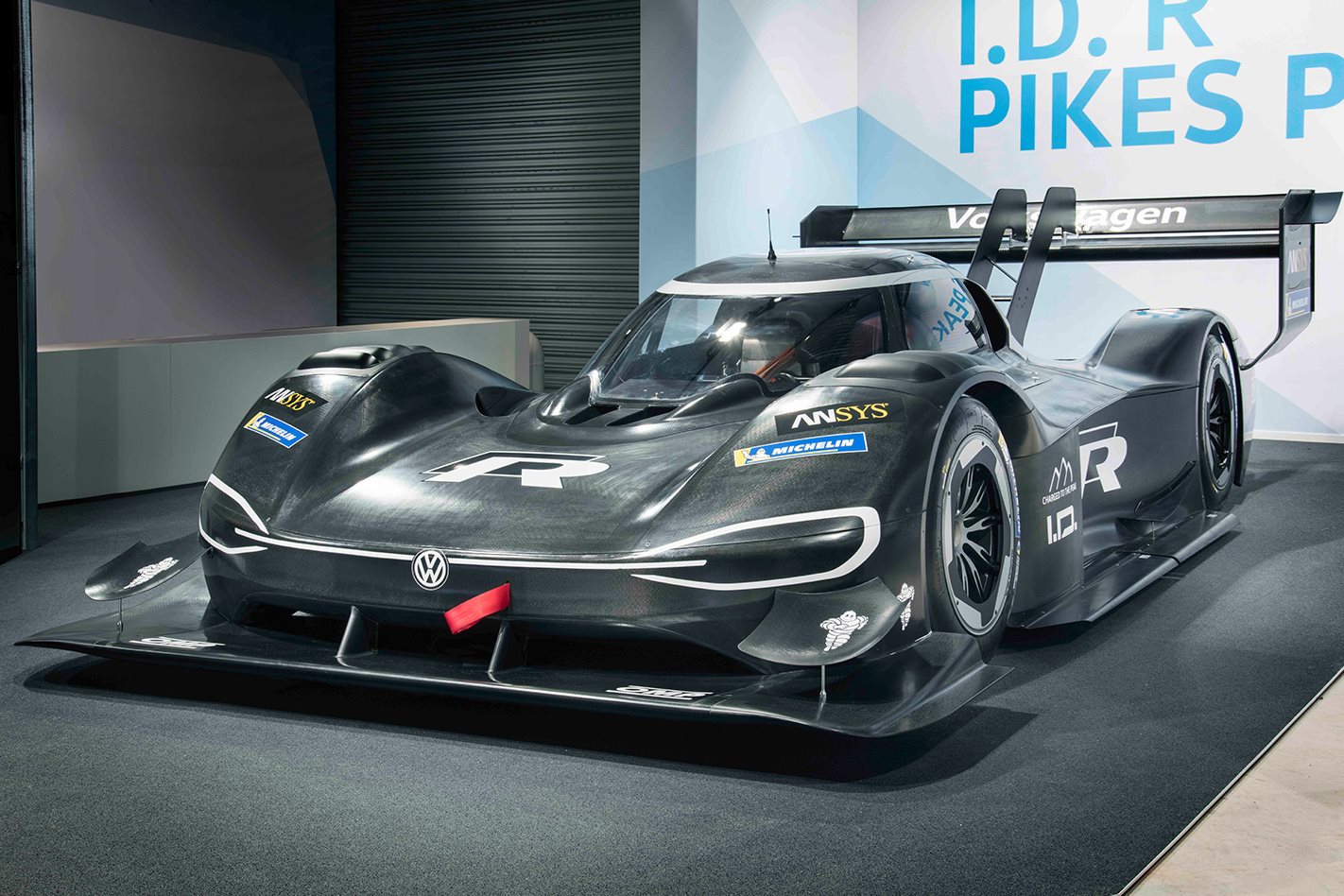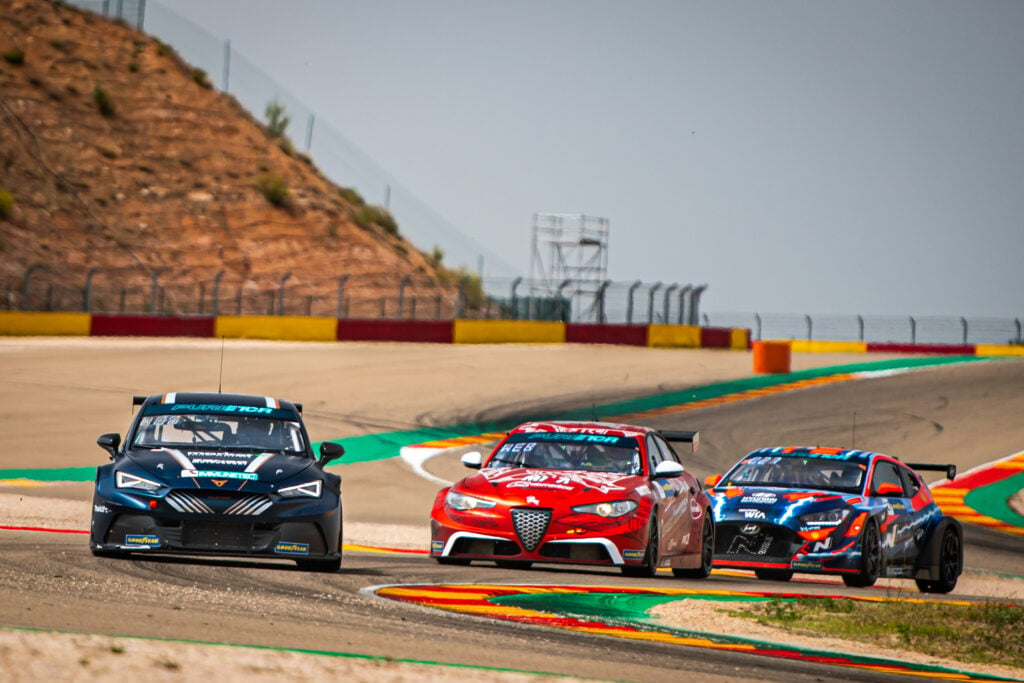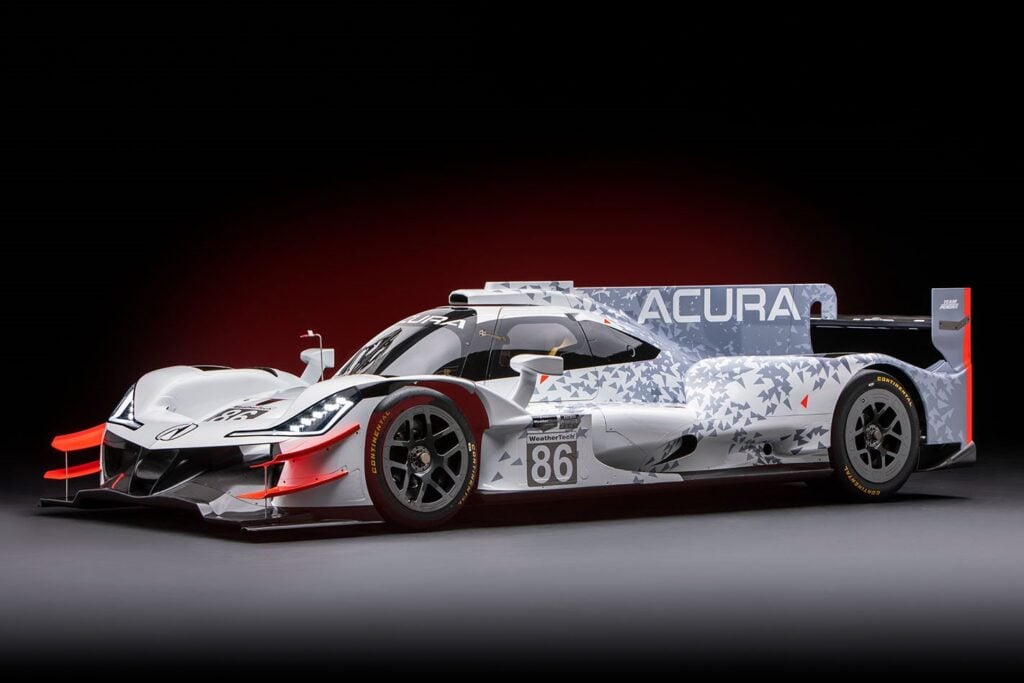NO HILL climb is as feared or revered as Pikes Peak, and Volkswagen is coming to dominate it – silently.
The German manufacturer overnight revealed its ID R, a purpose-built race car poised to take part in the 2018 running of the Race to the Clouds.
Looking like something ripped straight from the World Endurance Championship grid, the ID R is part marketing exercise, part engineer’s plaything.
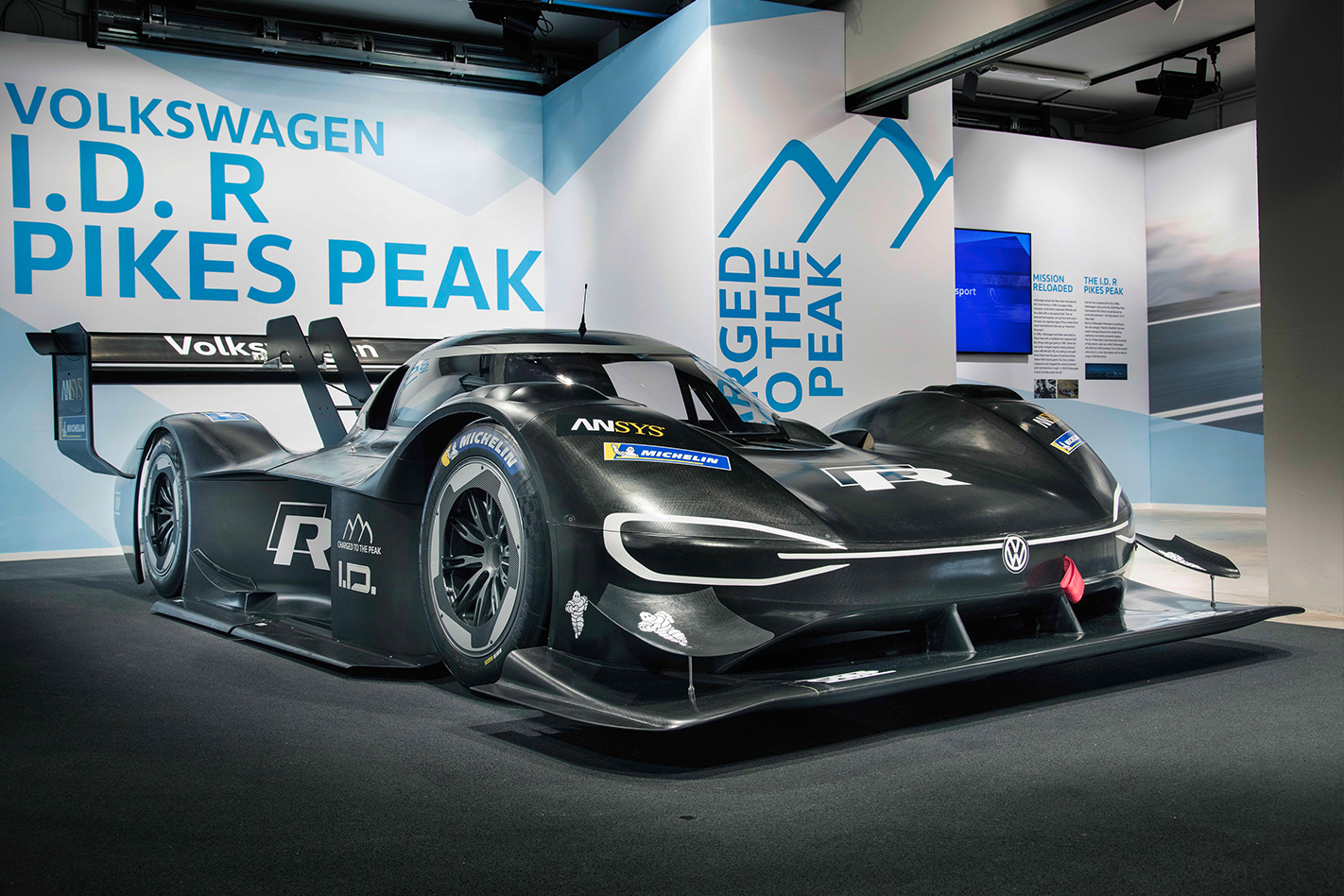
VW’s lithium-ion batteries, designed for 500kW and 650Nm of peak performance and not range, feed power to all four wheels via a pair of electric motors with active torque distribution.
That, paired with what are sure to be fat, sticky Michelin slick tyres, ensures the ID R can sprint to 100km/h in a scarcely believable 2.25 seconds on the way to a 240km/h top speed. Not even Formula 1 or Formula E can match those brutal acceleration figures.
The racer has a carbon monocoque chassis with a steel roll cage for safety (which comes in handy when tackling corners with well-earned names such as Devil’s Playground), and double wishbone suspension front and rear.
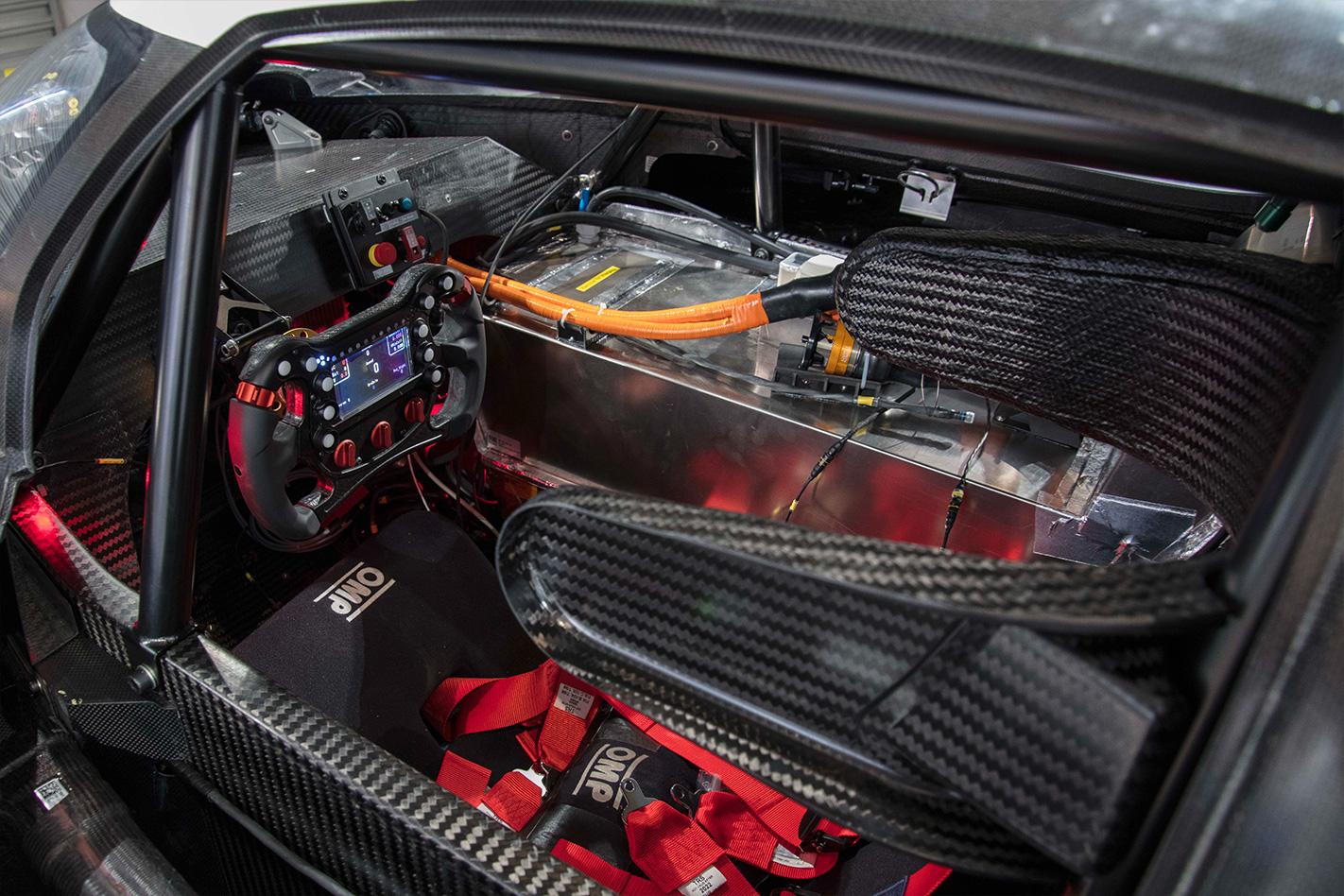
Around 20 percent of the energy required to complete the 2.86km, 156 corner climb will be generated from energy recovery systems when braking.
Compared with traditional combustion powered racers, the ID R holds the advantage of having all its power available for the entire run.
Starting at an elevation of 2862 metres above sea level, and climbing an extra 1440 metres, the Pikes Peak hill climb can leave conventionally powered cars gasping for air by time they reach the summit – there’s a reason turbocharged cars reign supreme here.
Batteries have no such issues, with power delivered in the same quantity at the end of the run as is available at the start line.
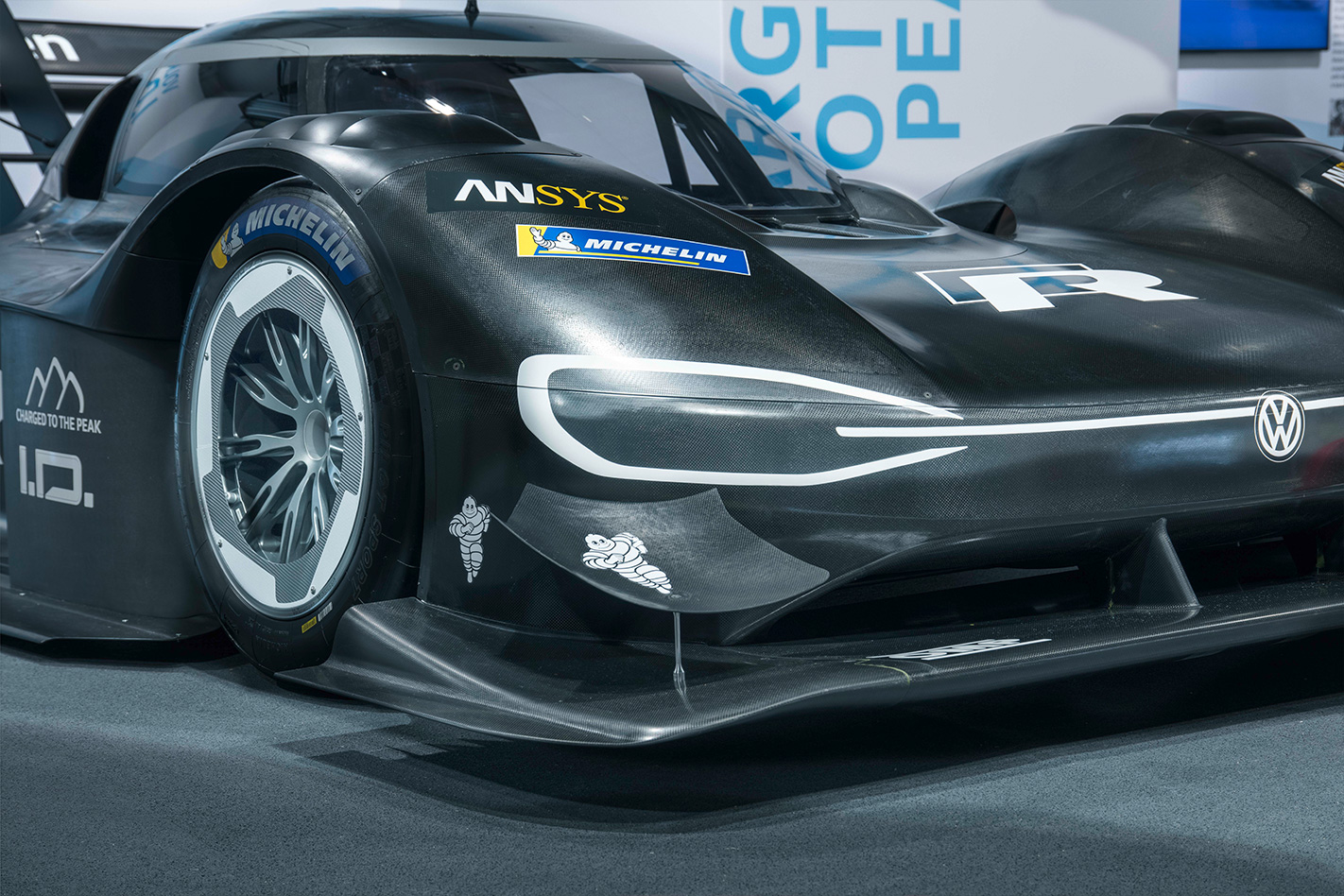
“Customers have always benefited from the findings made in motorsport,” VW board member Frank Welsch said. “We expect to take these findings and use them as a valuable impetus for the development of future ID models.
“The hill climb on Pikes Peak will definitely be a real acid test for the electric drive.”
Thankfully for VW, they’ve got Romain Dumas at the wheel, who knows a thing or two about conquering Colorado’s most famous stretch of road – he is the reigning PPIHC champion.
The Pikes Peak International Hill Climb will be held in June, with VW afforded just a single attempt at the mountain and the title.
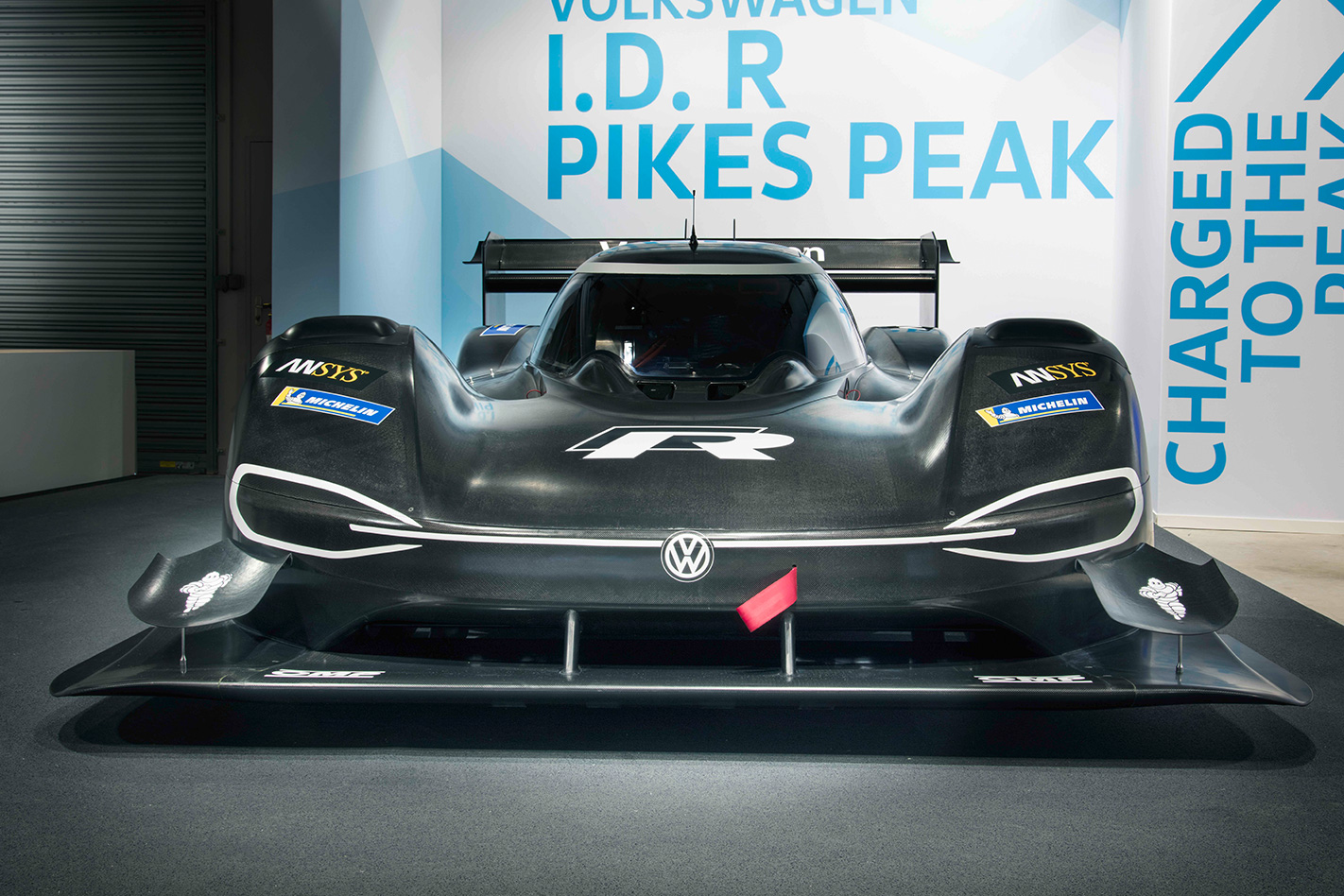
With testing on Pikes Peak extremely limited, the ID R will undergo continued development before the race on traditional dedicated race tracks.
Maybe VW Group can minimise costs and run the ID R at the same time as Porsche’s 919 Evo, which is touring the world this year on a glory run attempting to reset various lap records at iconic tracks?


